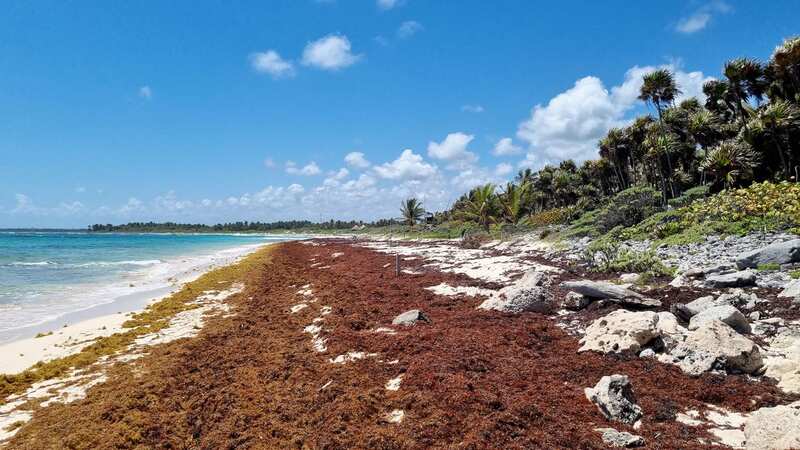UK beaches face threat of stinking seaweed invasion from the US

Huge piles of stinking, rotting seaweed are feared to be heading to European beaches after causing havoc for coastal communities in the USA.
Swathes of the notorious seaweed known as sargassum measuring several miles across have become an annual summer event since 2011. It can be devastating for local communities as it threatens fishing, the environment and health due to the toxic fumes it emits when rotting on beaches.
Now a scientist has warned it will soon become prolific in other areas and extend into European waters in the coming decades, with the likes of tourist havens the Canary Islands and Portugal on alert. It is feared to be another result of climate change affecting our planet home.
Robert Marsh, Professor of Oceanography and Climate at the University of Southampton, said: “Sargassum is very sensitive to temperature – it grows vigorously in warm tropical waters, but starts to die when the water temperature exceeds about 29C.
"With oceans predicted to be 1.5 degrees warmer within the next 30 years, by 2050 it might be too hot for sargassum to survive summer in the tropics – however, we predict it will be more prevalent earlier in the year and will spread poleward from the tropical Atlantic belt.
 Protesters planned to kidnap King Charles waxwork and hold it hostage
Protesters planned to kidnap King Charles waxwork and hold it hostage
"Carried across the Atlantic by ocean currents, we could even see it washing up on the beaches of the Canary Islands and Portugal, for example. What’s happening is a natural response to recent climate oscillations but it is likely being accelerated by climate change.”
The team also says that sargassum has a limited capacity to absorb carbon dioxide. Professor Marsh added: “There has been a lot of talk about sargassum being able to take carbon out of the atmosphere, but we have established that the use of sargassum as a carbon sink is not a realistic expectation.”
The team has been working with researchers from the University of York, the University of the West Indies, and the University of Ghana under a project called SARTRAC which is working to understand sargassum’s drivers and support local communities to manage it.
Professor Marsh added: “Sargassum currently affects countries that do not have the capacity to deal with it on their own, so there is a need for international collaboration to research and understand it, and to help manage it when it washes ashore.”
Earlier this week a family claimed they endured the “hotel from hell” on what was supposed , after they were plagued by an eggy stench coming from rotting seaweed. The Johnsons spent £18,108 for seven guests but when they arrived at Azul Beach Resort Riviera Cancún, Mexico, they claimed their rooms were plagued by the stench of decaying seaweed left to rot on beaches.
Read more similar news:
Comments:
comments powered by Disqus

































